What do London, Vienna and Cluj-Napoca have in common? Minio`s January WFA edition, of course!
Reading time: 5 minutes, 44 seconds
A Work-From-Anywhere regular, a semi-regular and a casual told us the story of January somewhere far from Bucharest. No, it’s not a joke, but they still try to entertain us with their impressions!
Where we worked from in January and what we enjoyed the most in the places we`ve been.

Max: From Vienna, where I’ve been working since last July, since I relocated. Because I work permanently from here, I can look after my son, take him to and from school, and basically spend a lot more time together. We have a big garden, but also a huge park nearby where we can always ride our bikes.
Răzvan: In January, my WFA was from Cluj-Napoca, where I am from. For me, it’s complicated, though, to compare Cluj with Bucharest, especially since I haven’t gotten to work from there yet.
Vlad: The better part of January I worked from London. Well, London was sunny for 3 weeks, while Bucharest got its fair share of rain, snow and cold weather. If you were somehow upset about the January weather, you should know that I was the one who stole the sunshine in a backpack.
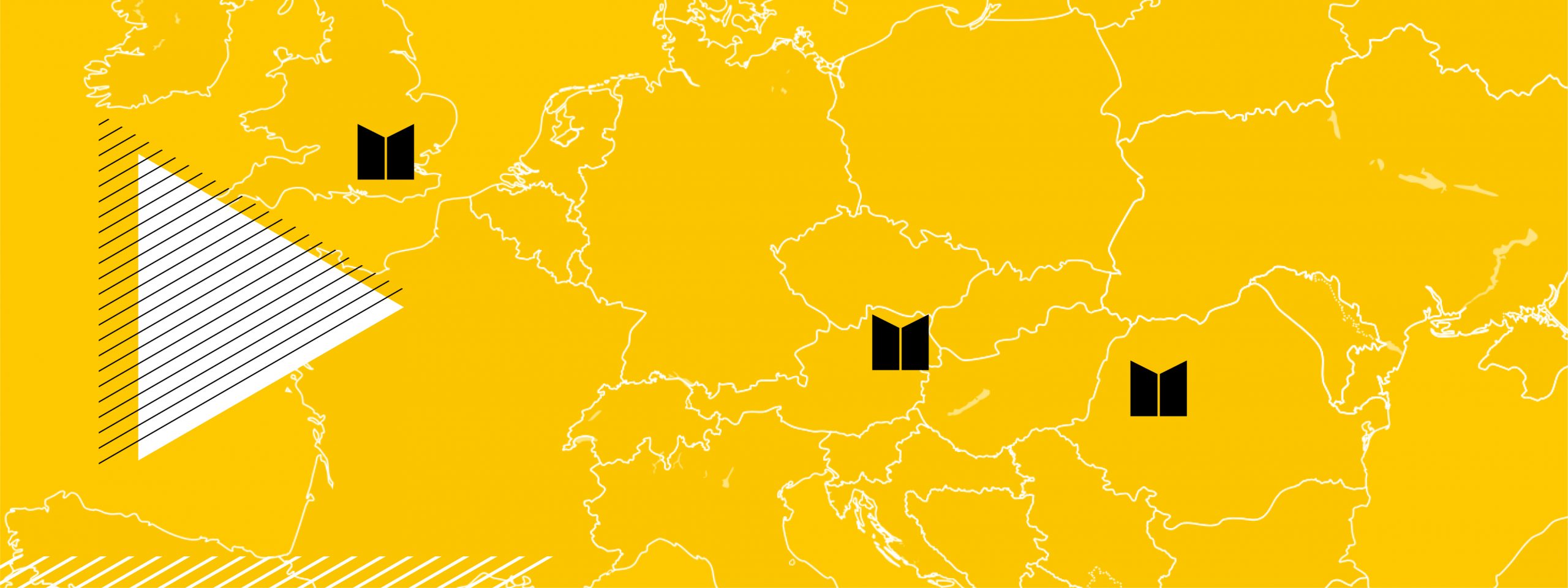

Max: Honestly, a lot of things, but to tell you just one that I really like: riding my bike safely and knowing I’m respected in traffic. That’s what Bucharest is missing: bike lanes, a lot more green spaces and more civilized people who don’t park their cars as they please on crosswalks or honk at you on the sidewalk, and also much more cleanliness.
Răzvan: I suppose you could enjoy the wild scenery around town. Cluj is surrounded by many beautiful places you can reach in half an hour by car. Plus, there are plenty of nice bars and restaurants, in addition to quality coffee that will make you happy. To be honest, I like Bucharest as it is. But to answer the question: it is ME that’s missing from Bucharest and that’s why I’m looking forward to meeting my new colleagues face to face, not just on screens.
Vlad: What was incredible about the London experience was that the whole city was more relaxed from a pandemic point of view and it was the first time in a long time that I had seen so many people gathered together in one place.
As for Bucharest, I think it could use integrated payment services for all public transport: although Bucharest has implemented card payment in STB recently, it’s a long way to go before it gets to the level of London where there is also a daily limit, regardless of the number of trips. But, after all, ridesharing services have to make a living, right?
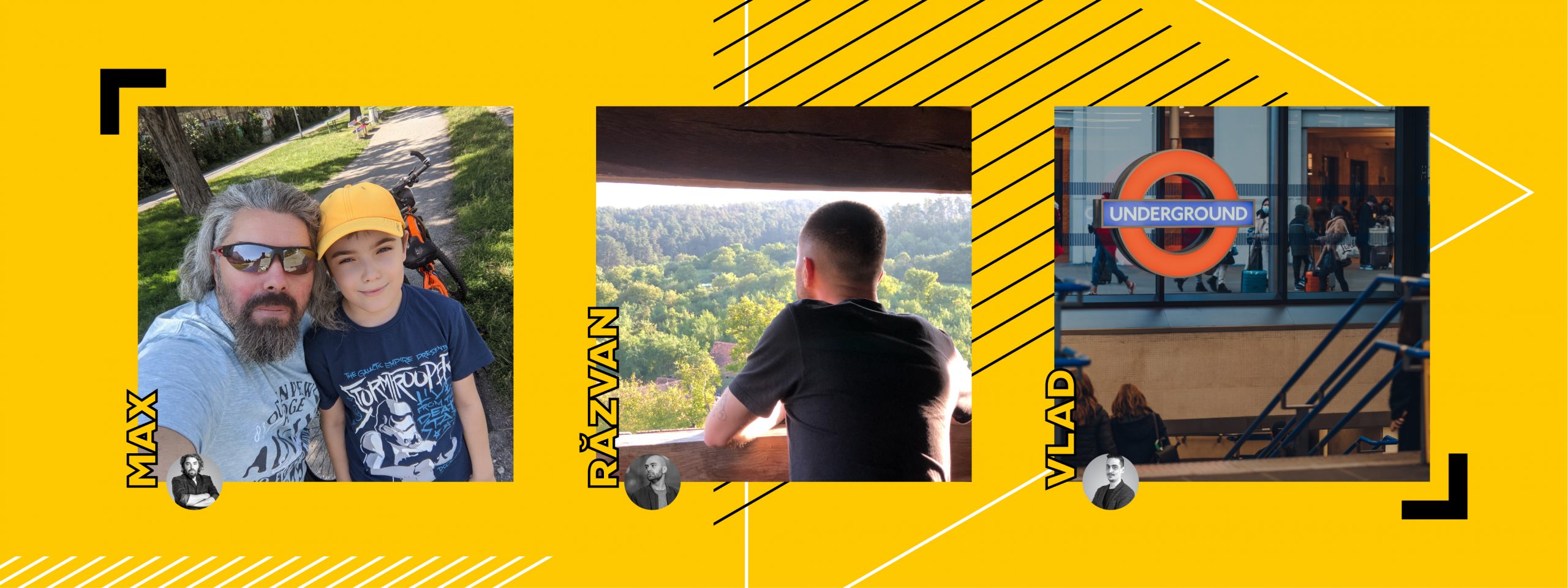

Max: Yeah, something funny! On the bus I was offered a seat by a 60-65 year old gentleman who saw I had a huge rucksack plus another bag. He must have noticed my white hair. Thank you, sir! :)))
Răzvan: Not for now, I had a more homey lifestyle: studying different things, reading and learning new stuff.
Vlad: If you’re both a Potterhead and a fan of antiquarian bookstores, you should know that there’s Diagon Alley in real life. Cecil Court, an almost hidden backstreet in central London filled with antiquarian shops of all kinds: one where you can only find books about music, another two-story one filled with books about spirituality (it also offers live fortune-telling services, ON PREMISE). What else is out there is for you to discover!
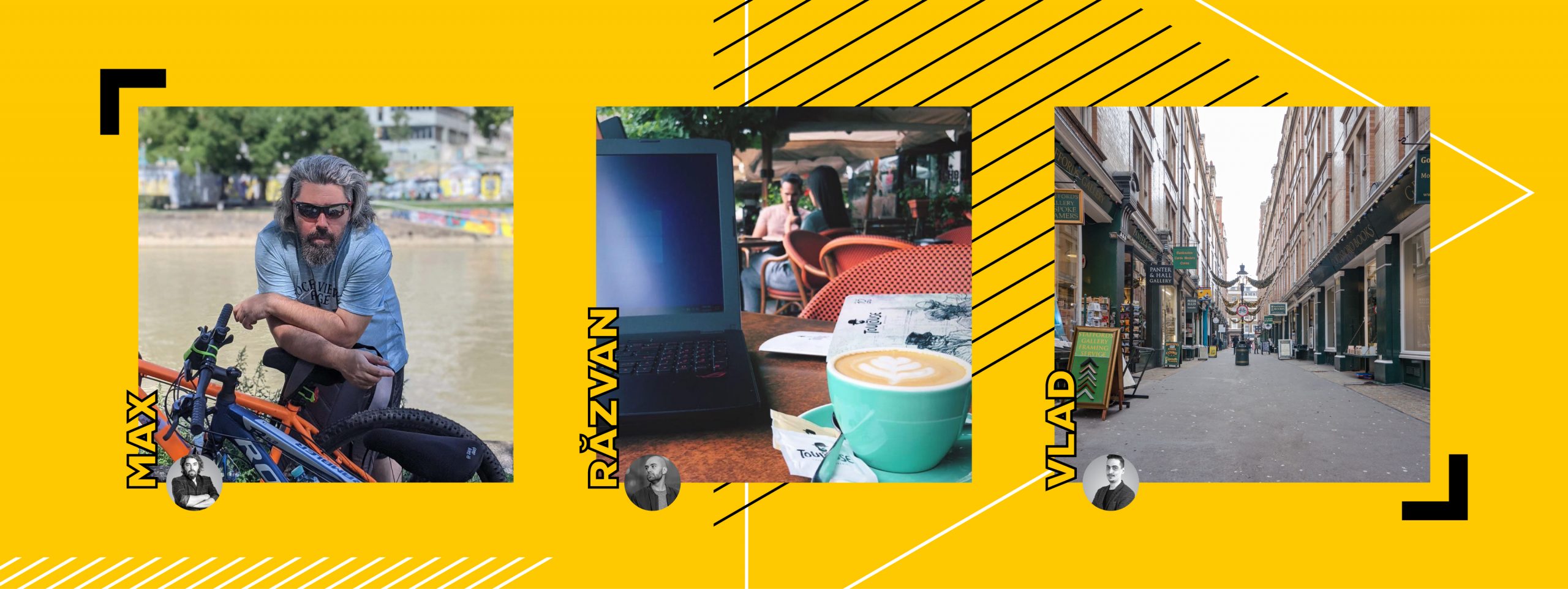

Max: I think advertising in Vienna is much simpler and cleaner
Răzvan: Compared to Bucharest, I think that in Cluj is less noisy in terms of advertising, maybe only the Manaștur district resembling Bucharest’s graphic agglomeration. In addition, I see a greater presence of local producers and brands specific to Transylvania with materials that seem to try to bring people closer to each other and also to create different communities.
Vlad: The central areas of the city have made the transition to D-OOH and have almost completely replaced the old ones: from bus stops to large displays in Piccadilly Circus, everything is animated, moving or jumping on digital screens.
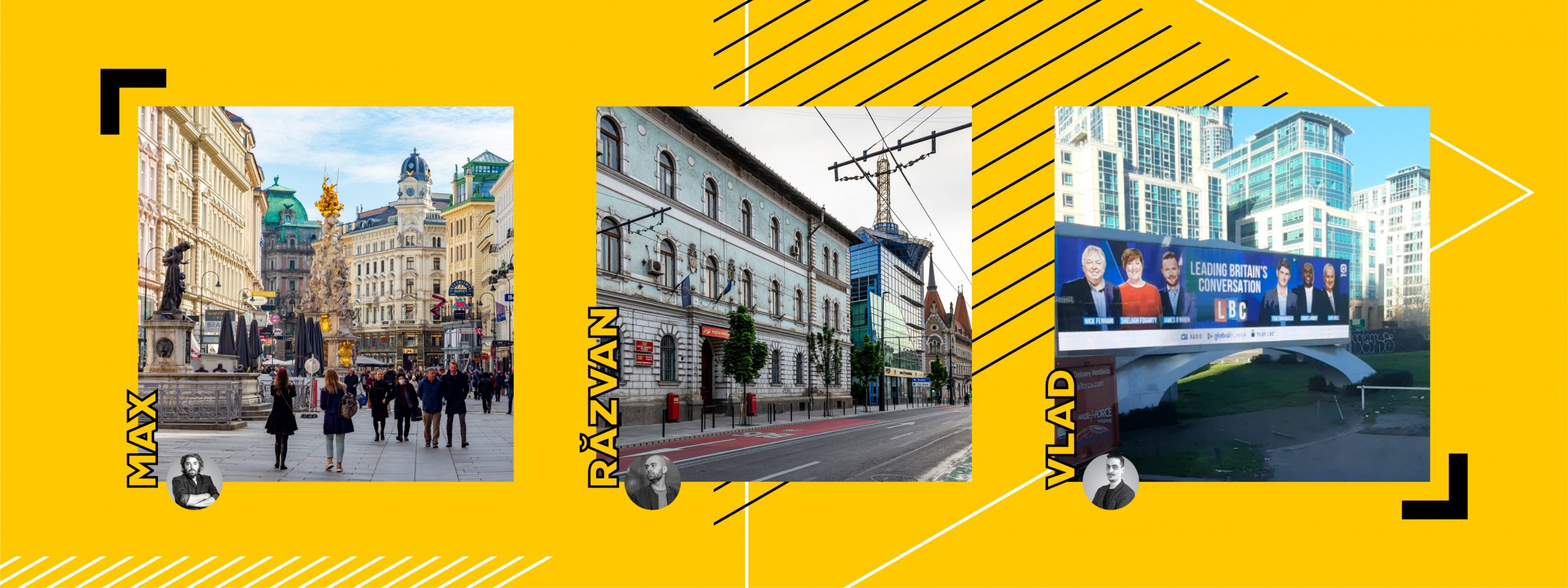

Max: Yes, I’ve seen a couple of local ads for Milka, Christmas edition, Skoda and Volkswagen, but due to lack of inspiration I didn’t take any pictures. Good thing, though, that the internet exists! As for contextual ones, most were from Bauhaus, Mjam and Obi.
Răzvan: I have seen an increase in the presence of Banca Transilvania communications and I think it is the perfect example of a brand with local origins, supporting its community and promoting its values. In addition, I noticed a lot of quality OOH materials and the fact that most of my friends in Cluj use Banca Transilvania. A few days ago I even had a clip in my TikTok feed where someone was filming a banner of Banca Transilvania that is placed on a building I always pass by when I leave home. The user even had a message: “don’t come to Cluj anymore, there are already too many of us!”. I laughed! Contextuals ads, on the other hand, I didn’t see much.
Vlad: HSBC’s TVC, Opportunity doesn’t do borders. What was interesting was how a bank somehow managed to address various social issues, be serious and also make a humorous spot, all at the same time. It was a great contrast to the communication of banks in Romania and a reminder that advertising can be done in so many different ways. About contextuals, it’s worth saying that part of their culture is to declare a certain period as dedicated for something( remember Movember or the already old Pancake Day that filled the social media content plans for so long?). So January became Vegnuary, the month when vegan and vegetarian food were promoted, with a very clever timing: right after the winter holiday season and its fatty foods.
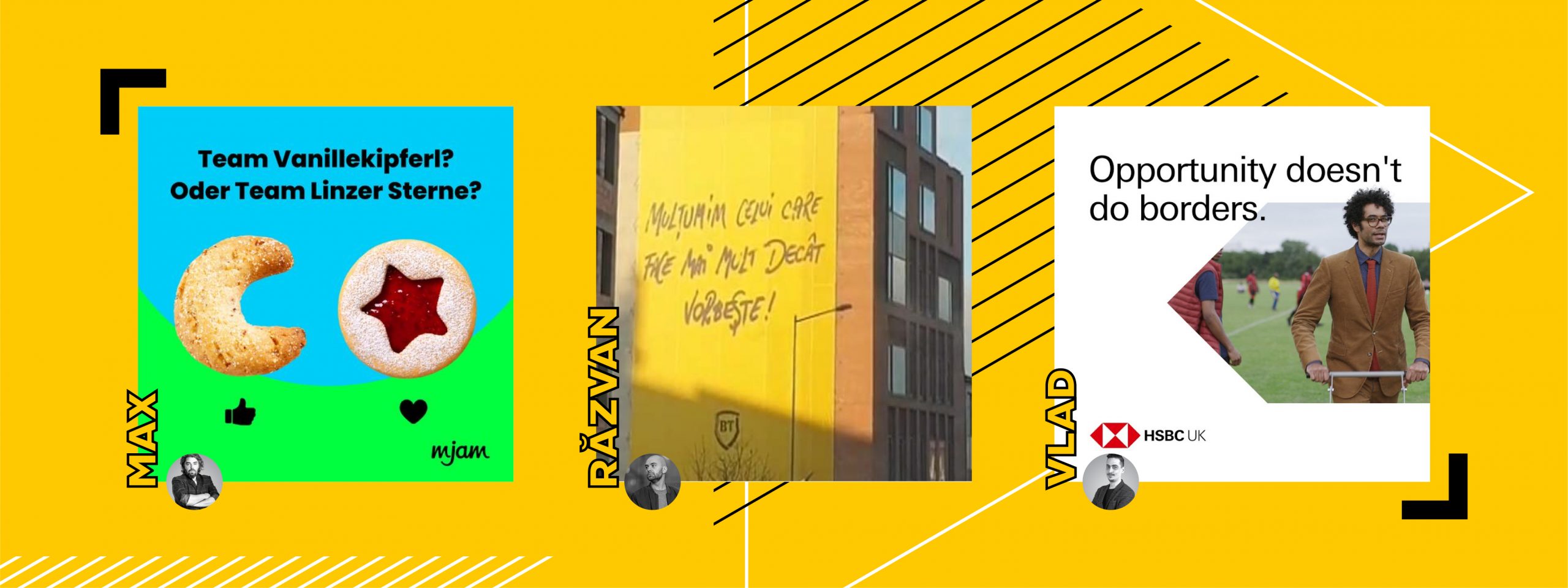

Max: It gives me energy and, surprisingly, I feel very well, even if I don’t know German. It’s much quieter and the fact that I have green spaces nearby and can sit in the courtyard in the fresh air makes a huge difference.
Răzvan: Yes, it inspired me a lot! The city gives me a peace of mind that is hard to find in Bucharest. Besides, it is very lively and full of young people. The tech and creative industries are now growing and making their presence felt, in such a way that they make the city feel like a hub full of ideas.
Vlad: Romanian advertising with British influences is rarely a good combination, so I hope not! The thing is they have different cultural references, different views on life and approaches to it which makes integrating different elements of British advertising into Romanian advertising difficult.